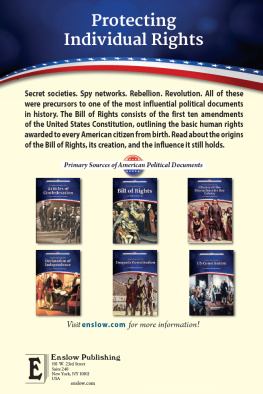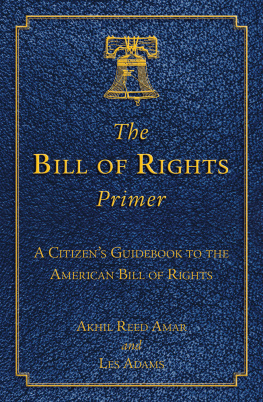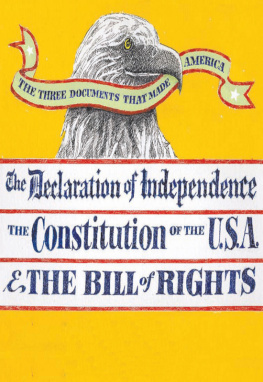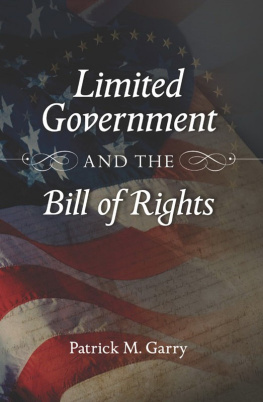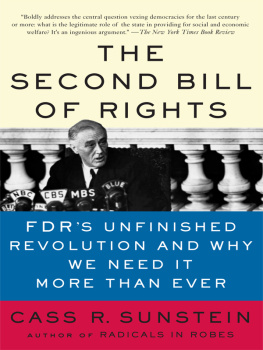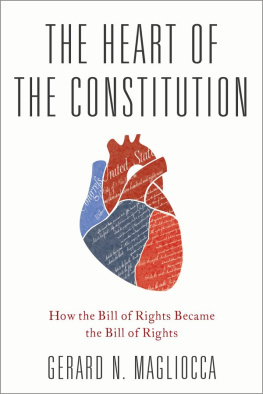Linda R Monk - The Bill of Rights
Here you can read online Linda R Monk - The Bill of Rights full text of the book (entire story) in english for free. Download pdf and epub, get meaning, cover and reviews about this ebook. year: 2018, publisher: Hachette Books, genre: Politics. Description of the work, (preface) as well as reviews are available. Best literature library LitArk.com created for fans of good reading and offers a wide selection of genres:
Romance novel
Science fiction
Adventure
Detective
Science
History
Home and family
Prose
Art
Politics
Computer
Non-fiction
Religion
Business
Children
Humor
Choose a favorite category and find really read worthwhile books. Enjoy immersion in the world of imagination, feel the emotions of the characters or learn something new for yourself, make an fascinating discovery.

- Book:The Bill of Rights
- Author:
- Publisher:Hachette Books
- Genre:
- Year:2018
- Rating:5 / 5
- Favourites:Add to favourites
- Your mark:
- 100
- 1
- 2
- 3
- 4
- 5
The Bill of Rights: summary, description and annotation
We offer to read an annotation, description, summary or preface (depends on what the author of the book "The Bill of Rights" wrote himself). If you haven't found the necessary information about the book — write in the comments, we will try to find it.
The Bill of Rights — read online for free the complete book (whole text) full work
Below is the text of the book, divided by pages. System saving the place of the last page read, allows you to conveniently read the book "The Bill of Rights" online for free, without having to search again every time where you left off. Put a bookmark, and you can go to the page where you finished reading at any time.
Font size:
Interval:
Bookmark:
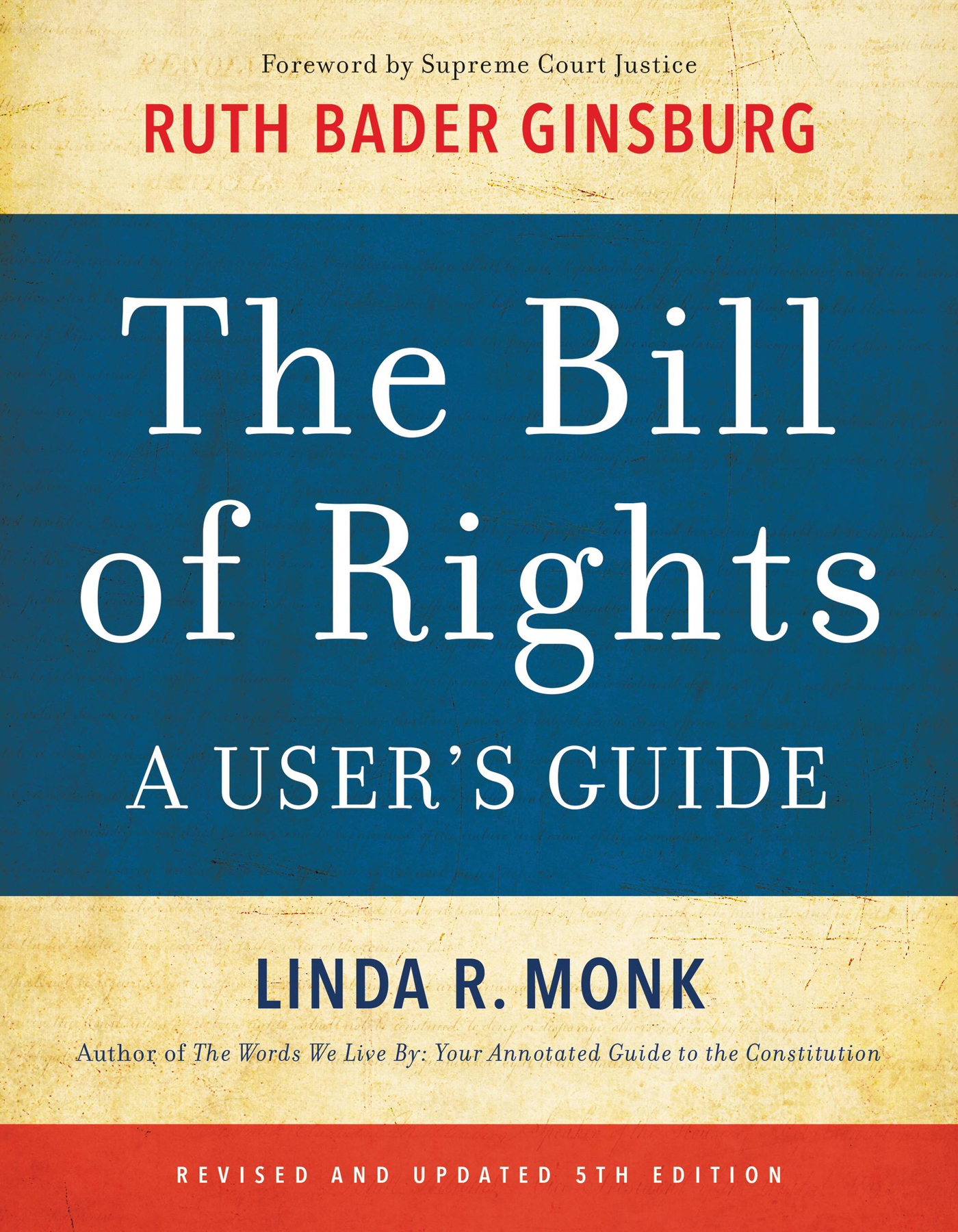
To receive special offers, bonus content, and news about ourlatest ebooks and apps, sign up for our newsletters.
Sign Up
Or visit us at hachettebookgroup.com/newsletters
Copyright 2018 by Linda R. Monk
1991, 1995, 2000, 2004 by the Close Up Foundation
Cover design by Carlos Esparza
Bill of Rights courtesy of the National Archives and Records Administration
Cover copyright 2018 by Hachette Book Group, Inc.
Hachette Book Group supports the right to free expression and the value of copyright. The purpose of copyright is to encourage writers and artists to produce the creative works that enrich our culture.
The scanning, uploading, and distribution of this book without permission is a theft of the authors intellectual property. If you would like permission to use material from the book (other than for review purposes), please contact permissions@hbgusa.com. Thank you for your support of the authors rights.
Hachette Books
Hachette Book Group
1290 Avenue of the Americas
New York, NY 10104
hachettebookgroup.com
twitter.com/hachettebooks
Originally published in paperback by the Close Up Foundation in December 1991.
First Hachette Books Paperback Edition: April 2018
Hachette Books is a division of Hachette Book Group, Inc.
The Hachette Books name and logo are trademarks of Hachette Book Group, Inc.
The publisher is not responsible for websites (or their content) that are not owned by the publisher.
The Hachette Speakers Bureau provides a wide range of authors for speaking events. To find out more, go to www.hachettespeakersbureau.com or call (866) 376-6591.
Library of Congress Control Number: 2017959044
ISBNs: 978-0-316-41560-6 (paperback), 978-0-316-41775-4 (ebook)
E3-20180219-JV-NF
For my parents,
William Elige Monk and Betty Ruth Smith Monk
America has always been about rights. While many nations are based on a shared language or ethnic heritage, Americans have made rights the foundation of their national identity.
Commission on the Bicentennial of the United States Constitution
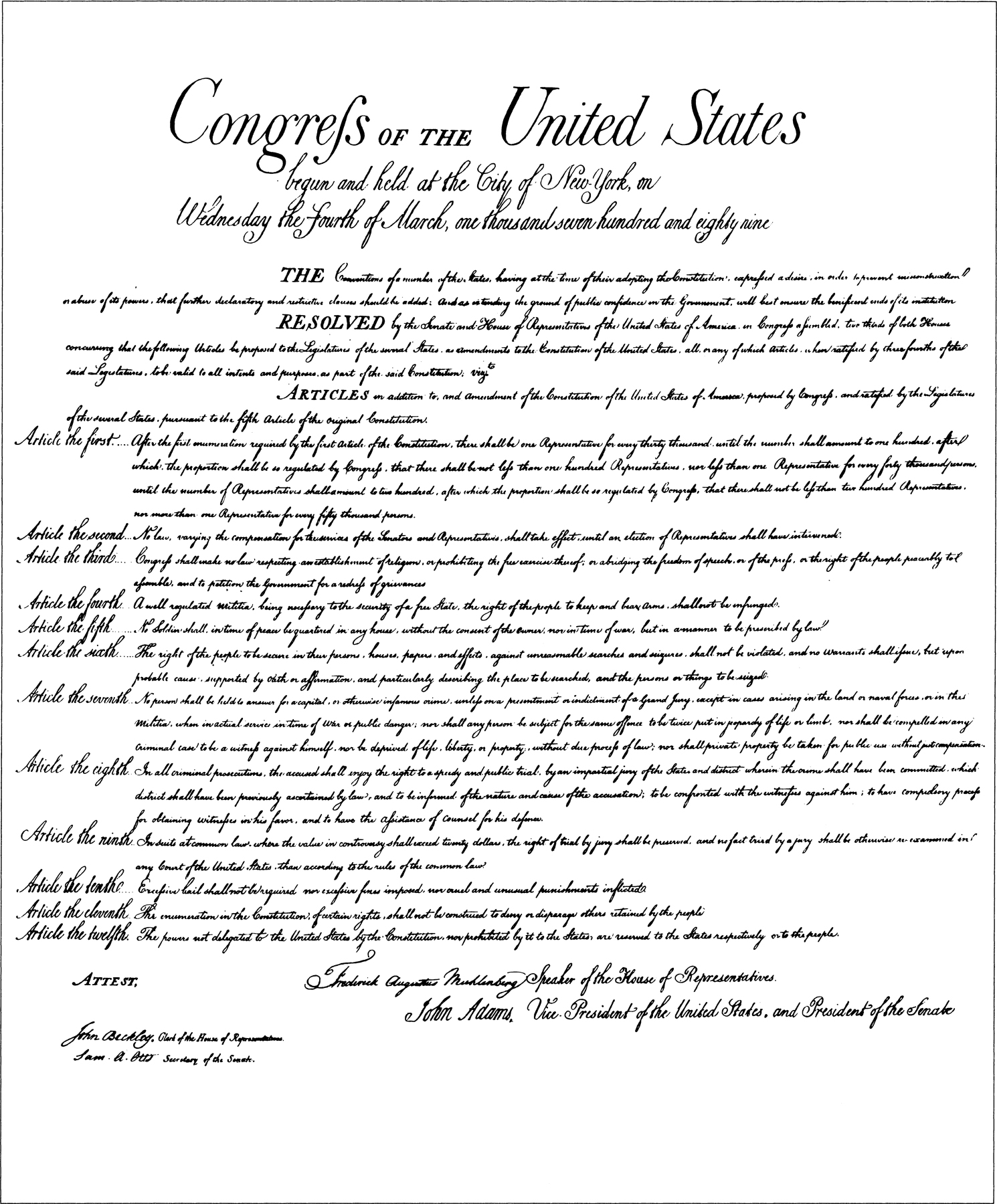
National Archives
D rafted in 1787, the U.S. Constitution is the oldest written national constitution still in use. Many of the Constitutions supporters (James Madison, the Constitutions principal author, among them) had initially argued that a Bill of Rights was unnecessary. In Federalist 84, Alexander Hamilton wrote that bills of rights are, in their origin, stipulations between kings and their subjects, reservations of rights not surrendered to the prince. No need, Hamilton asserted, for such a document in a constitution founded upon the power of the people, and executed by their immediate representatives and servants; here, the people surrender nothing; and as they retain everything, they have no need of particular reservations.
But Madison, Hamilton, and the other Federalists could not win over the opposition on this point. As one of the great compromises that helped assure passage of our founding document, the first Congress passed a terse Bill of Rights, adopting provisions submitted by Madison himself. Ratified by the states in 1791, the Bill of Rights contains ten amendments. Since then, the Constitution has been amended only seventeen times.
Neither the original Constitution, nor the Bill of Rights, bestows any rights on individuals. To the Framers, no document could perform that task. In their view, individual rights antedated the state and thus were not the states to confer. As Jefferson wrote in our principal rights-declaring document, the Declaration of Independence: We hold these truths to be self-evident, that all men are created equal, that they are endowed by their Creator with certain unalienable Rights, that among these are Life, Liberty, and the pursuit of Happiness. Thus, the Bill of Rights assumes the existence of fundamental human rightsfor example, freedom of speech, press, and assemblyand simply instructs the state not to interfere with those rights.
Madison recognized that if the Bill of Rights was not to be a mere parchment barrier to the will of the majority, the judiciary would have to play a central role. If [a Bill of Rights is] incorporated into the Constitution, independent tribunals of justice will consider themselves in a peculiar manner the guardians of those rights; they will be an impenetrable bulwark naturally led to resist every encroachment upon rights.
While that sentiment has brightened the spirit of the men and women privileged to serve on the federal bench, the judiciary does not stand alone in guarding against governmental interference with fundamental rights. Responsibility for securing those rights is a charge we share with the Congress, the president, the states, and with the people themselves. As one of our greatest jurists, Judge Learned Hand, put it, the spirit of liberty that infuses our Constitutiona spirit that is not too sure it is right, one that seeks to understand the minds of other men and women and to weigh the interests of others alongside its own without biasmust lie, first and foremost, in the hearts and minds of the men and women who compose this great nation.
It manifests no disrespect for the Constitution to note that the Framers were gentlemen of their time, and therefore had a distinctly limited vision of those who counted among We the People. Not until adoption of the postCivil War Fourteenth Amendment did the word equal, in relation to the stature of individuals, even make an appearance in the Constitution. But the equal dignity of all persons is nonetheless a vital part of our constitutional legacy, even if the culture of the Framers held them back from fully perceiving that universal ideal. We can best celebrate that legacy by continuing to strive to form a more perfect Union for ourselves and the generations to come.
Ruth Bader Ginsburg
Associate Justice
Supreme Court of the United States
A merica is a nation based on an idea. That idea, as expressed in the Declaration of Independence, is that all people are endowed with certain unalienable Rights and that the purpose of government is to secure these rights. Rights are at the center of Americans national identity. Rights are why many people make America their home.
In 1791, Americans added a list of their rights to the Constitution. These first ten amendments became known as the Bill of Rights. But putting rights on paper is not enough. As the late Learned Hand, one of Americas greatest judges, said: Liberty lies in the hearts of men and women; when it dies there, no constitution, no law, no court can save it. In Hands opinion, the real protectors of liberty were not constitutions or courts, but citizens.
Justice William O. Douglas of the U.S. Supreme Court, in his book A Living Bill of Rights, agreed with Judge Hand:
What our Constitution says, what our legislatures do, and what our courts write are vitally important. But the reality of freedom in our daily lives is shown by the attitudes and policies of people toward each other in the very block or township where we live. There we will find the real measure of A Living Bill of Rights.
The purpose of this users guide to the Bill of Rights is to help citizens make the Bill of Rights a living document in their everyday lives. Unfortunately, the Bill of Rights did not come with an instruction manual. The language of 1791 can often be difficult to understand and apply more than 200 years later. Therefore, this guide describes the history of each right in the Bill of Rights and explains how the Supreme Court interpreted those rights. It also tells the stories of many ordinary people who have helped keep the Bill of Rights a living documentnot just an artifact stored under glass at the National Archives in Washington, D.C. Making the Bill of Rights come alive in our communities is the best way to secure those rights for generations to come.
Font size:
Interval:
Bookmark:
Similar books «The Bill of Rights»
Look at similar books to The Bill of Rights. We have selected literature similar in name and meaning in the hope of providing readers with more options to find new, interesting, not yet read works.
Discussion, reviews of the book The Bill of Rights and just readers' own opinions. Leave your comments, write what you think about the work, its meaning or the main characters. Specify what exactly you liked and what you didn't like, and why you think so.

